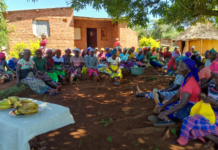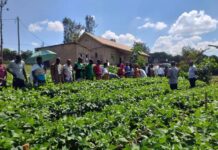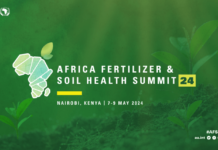By Zablon Oyugi
The Kenya, Netherlands cooperation in agriculture took a dive into Sanitary and Phytosanitary Standards (SPS) concerns raised by farmers and exporters during the recently concluded this year’s Naivasha Horticultural Fair in Nakuru County.
The initiative is a continuation of the bilateral cooperation in agriculture between Kenya and Netherlands following a bilateral cooperation in the sector the two parties signed in July this year.
According to Bart Pauwels, Agriculture Counsellor at the Embassy of the Kingdom of the Netherlands who opened the even, the role of SPS in international trade and agri-business has changed over the past decade from the technical sense to being a competitive instrument in differentiated product market hence the need to give it a proper focus.
“SPS measures are now becoming a strategic tool for developing and differentiating markets, gaining market access, coordinating the quality and safety of the food system, and defining market niches for export products.”
As a result, this is especially crucial as the market for “green” products, such as those that are produced sustainably by addressing their social and environmental dimensions, is growing rapidly.
“With this backdrop, there is need for increased collaboration and sharing of new ideas (cross learning), approaches, and experiences among the sector players in Kenya,” noted Pauwels.
Arising concerns
Some of the arising concerns by farmers and manufacturers on the use of agro-chemicals are, among others, the long period some of the chemicals used in crop production take to get cleared by the Pest Control Product Board (PCPB) for use in Kenya.
Currently, according to Pest Control Products (Registration) Regulations, 2022 it takes up to about five years for a pesticide to be cleared and registered for use in the country something farmers and manufacturers say is a challenge in production.
However, Sarah Wambugu, Senior Pesticide Registration officer at Pest Control Products Board, said that the long period is caused by the processes from lab tests to farm trials on target crops and pests for a series of seasons to ascertain if effectiveness and probably if it could have harmful effects the users and public should be aware of.
“The time fairly is long considering a number of issues and trials the chemicals have to be taken through to ensure they are not only effective owing the intended purpose but also safe for humans and the environment,” said Sarah.
Also, in response to raised question whether the government may consider temporary clearance permit on certain products which have been cleared for use in other markets, say, in Europe where most of Kenyan fresh produce are exported to, the officer said there is such a consideration and soon guidelines towards the same will be out.
BioProtection
African agriculture largely relies heavily on artificial fertilizers and pesticides, whose use has more than doubled in the last four years.
However, some of the pesticides are very toxic and have been banned in the European markets giving rise to many bioprotection approaches such as the use of biopesticides and beneficial insects to control harmful pests and diseases without harming non target organisms.
In fact, the Naivasha Horticultural Fair witnessed a host of manufacturers and dealers in biocontrol products that include Dudutech, a Naivasha-based firm which develops appropriate biological products for full Integrated Crop Management systems.
Giving a presentation on the topic, Abigael Mchana of Centre for Agriculture and Bioscience International (CABI) said the not-for-profit international organisation in February 2020 launched CABI BioProtection Portal in Kenya to help farmers on biocontrol mechanisms.
“This portal is the largest open-access database of biological plant protection products. It is dedicated online resource aimed at raising the awareness and uptake of more environmentally friendly biocontrol and biopesticide products by growers and their advisors,” said Abigael.
According to her, using the available information on the portal will boost farmers and exporters access to global markets as there will be less issues with SPS.
Other government regulatory bodies and organisations present included Kenya Plant Health Inspectorate Services (KEPHIS), International Biopesticide Manufacturers Association (IBMA), Kenya Flower Council (KFC) and the other private sectors.








